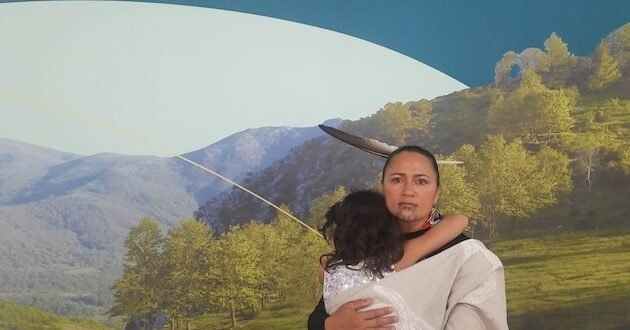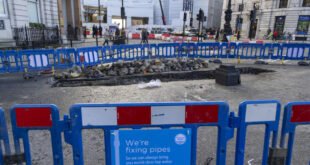
BAKU, Nov 15 (IPS) – Kaitiaki! Whaia says she is at COP29 to bring indigenous wisdom to influence policy and to provide guardianship (kaitiaki) of the climate negotiations.
Whaia, who now lives in Aotearoa, New Zealand, was raised as an Indigenous Aboriginal in Australia, where through her community she led a life of cultural practices that protect the environment.
“Our cultural practices, our cultural ways, and the environment have always been our teacher and our classroom. To recognize our ‘Kaitiaki’ responsibilities is to be with the environment in the way that we have always lived.”
She came here with the Wisdom Keeper delegation and non-profit Indigenous Global Eldership, expressing a preference for saying, “That we are walking with them.” There are 16 members in the delegation with people from all across the globe—Hopi nation, Totemic Mexican, Māori, Palestinian, African, Canadian, Australian, U.S. and Amazonian.
Advocating for people from diverse backgrounds in the policy space, she said, “People are from different places here but united by a common goal. Some of us have been working in this policy space and some of us are new to the policy world. So we are about bridging the gaps between these spaces.”
With regard to promoting Indigenous knowledge, Whaia said, “Sometimes we feel that we don’t know policy. However, if we know our rights of passage, our ancient practices and our protocols, then we know policy. It just gets lost in translation within the language. So we are here to cross the bridge.”
Whaia came to the COP29 with her daughter. Moana beamed when she told IPS that it was Moana’s second COP.
“Moana also walked with the Wisdom Keeper delegation in Dubai last year when she was just seven years old.”
On bringing Moana to COP 29, she said, “I take her to all important meetings. I believe that we should actually bring the wisdom into our younger generation. They are the ones who will inherit the choices that we make.”
Whaia, beautifully playing multiple roles as an indigenous person, policy advocate, feminist, and mother, says, “Time taken to take care of our children is never a burden. Taking care of family are the rights and responsibilities that we all must step into. It starts at home, within our communities and extends globally.”
IPS UN Bureau Report
Follow @IPSNewsUNBureau
Follow IPS News UN Bureau on Instagram
© Inter Press Service (2024) — All Rights ReservedOriginal source: Inter Press Service

